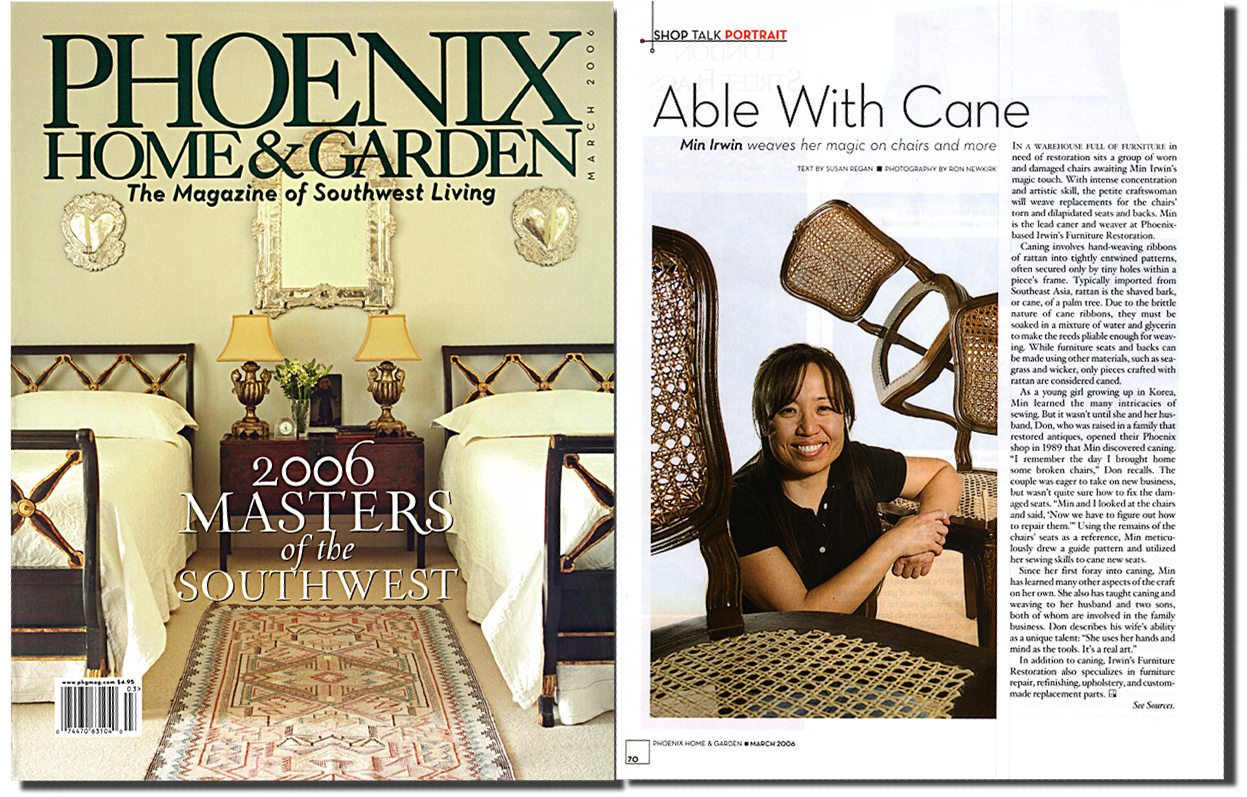 Phoenix Home & Garden
Phoenix Home & Garden
IN A WAREHOUSE FULL OF FURNITURE in need of restoration sits a group of worn and damaged chairs awaiting Min Irwin's magic touch. With intense concentration and artistic skill, the petite craftswoman will weave replacements for the chairs' torn and dilapidated seats and backs. Min is the lead caner and weaver at Phoenix-based Irwin's Furniture Restoration.
Caning involves hand-weaving ribbons of rattan into tightly entwined patterns, often secured only by tiny holes within a piece's frame. Typically imported from Southeast Asia, rattan is the shaved bark, or cane, of a palm tree. Due to the brittle nature of cane ribbons, they must be soaked in a mixture of water and glycerin to make the reeds pliable enough for weaving. While furniture seats and backs can be made using other materials, such as seagrass and wicker, only pieces crafted with rattan are considered caned.
As a young girl growing up in Korea, Min learned the many intricacies of sewing. But it wasn't until she and her husband, Don, who was raised in a family that restored antiques, opened their Phoenix shop in 1989 that Min discovered caning. "I remember the day I brought home some broken chairs," Don recalls. The couple was eager to take on new business, but wasn't quite sure how to fix the damaged seats. "Min and I looked at the chairs and said, "Now we have to figure out how to repair them." Using the remains of the chairs' seats as a reference, Min meticulously drew a guide pattern and utilized her sewing skills to cane new seats.
Since her first foray into caning, Min has learned many other aspects of the craft on her own. She also has taught caning and weaving to her husband and two sons, both of whom are involved in the family business. Don describes his wife's ability as a unique talent: "She uses her hands and mind as the tools. It's a real art."
In addition to caning, Irwin's Furniture Restoration also specializes in furniture repair, refinishing, upholstery, and custom-made replacement parts.





